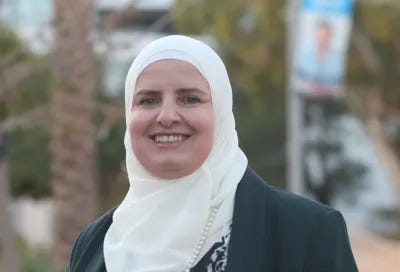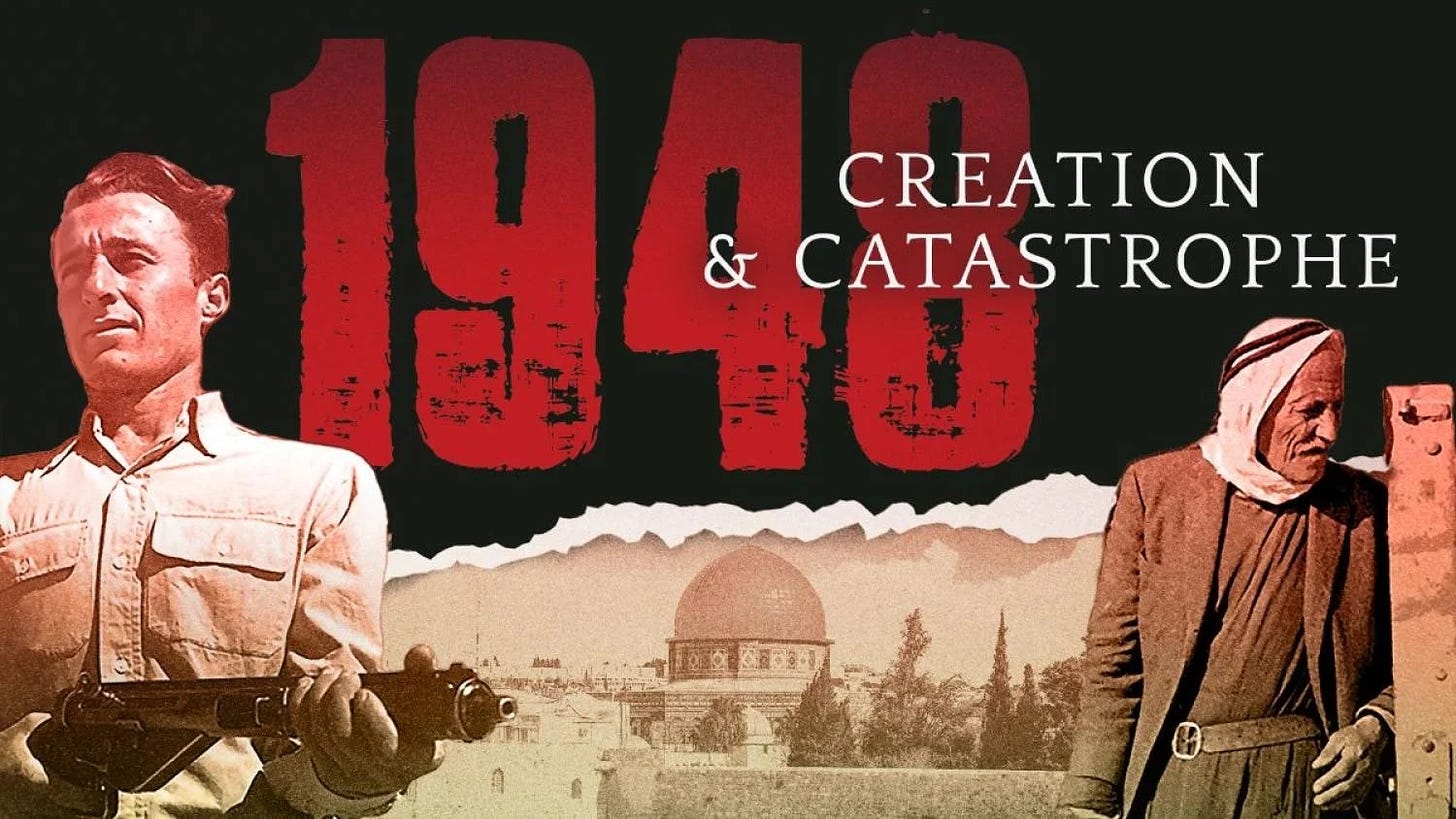I’ve been doing weekend streams discussing important documentaries on Palestine and I was surprised to receive, via Facebook Messenger, a note from one of the creators of the film, 1948: Creation and Catastrophe, Dr. Ahlam Muhtaseb, of Cal State San Bernardino. She was willing to make herself available to discuss and I jumped at the opportunity.
What was supposed to be a 30-minute discussion turned into over 75 minutes and I’m so grateful for the time she spent with the audience of Palestine Bookshelf, not just on behalf of the live viewers, but everyone who will be able to see the replay of the broadcast now.
I want to encourage people to watch that entire discussion. In the meantime, let me share a few quick discussion points from our time together.
Releasing a film is not an end, but rather a beginning. When you release any creative work out into the world, you now have a new task, which is letting the world know it exists. It took Dr. Muhtaseb and Andy Trimlett, her partner in this venture, ten years to bring this fine documentary into existence, and to this day they are both trying to make sure it is known and further spread.
Andy Trimlett, despite possessing a degree in Middle Eastern Studies, said that he couldn’t understand the Palestinian conflict until studying the events of 1948. You can find a few of our resources here.
Postproduction and editing are far more difficult than doing the interviews. The original version was 2.5 hours (the one we watched for film club was just under 90 minutes) and several in the chat joined my chorus to get access to the “director’s cut” edition, even without the soundtrack or graphic accompaniment.
The Deir Yassin Massacre, one of the major pivot points of documentary, didn’t have witness-based content until Ahlam and Andy had already gone into postproduction and had considered the film wrapped. It was a chance meeting that led to interviews that made a major impact on the film.
Dr. Muhtaseb tries to address the enigma that is Benny Morris, i.e. excellent footnoted scholarship vs. his own personal views. That exchange begins at 16:44 in the stream.
The necessity of breaking up painful and difficult oral testimony with facts and graphics and other information, otherwise people can become overwhelmed.
Dr. Muhtaseb shares her copy of Arif al-Arif’s three-volume work on the Nakba (The Nakba of Jerusalem and the Lost Paradise, 1947-1949) (37:00).
The question of use of the term “the Jews” vs. “the Zionists” when discussing what is happening in Palestine, both historically and in the present tense.
A beautiful story about a personal connection with Jews in Hebron (48:55).
A wonderful project, Gaza XR, which was meant to attest to humanity in Gaza, but now serves as a historical snapshot, since Gaza has been so destroyed since the project was completed.
If you haven’t seen the film, take some time and do so soon.
#EndTheOccupation






